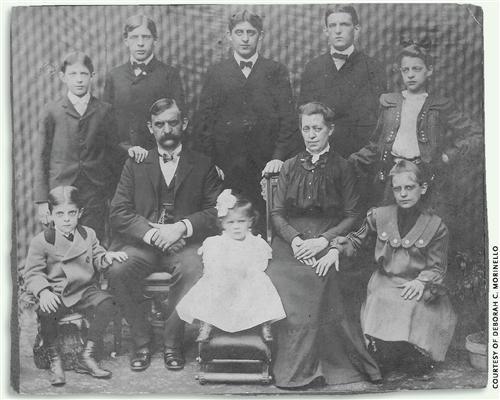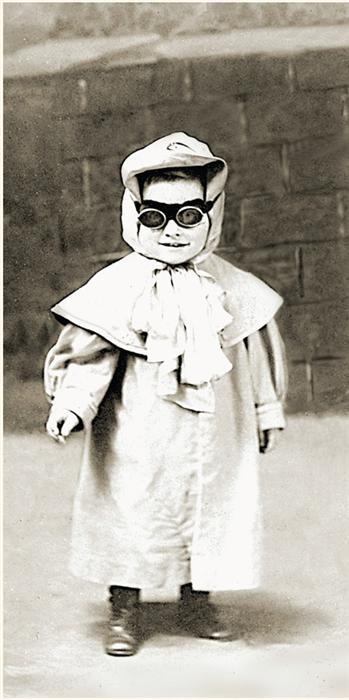Sign up for the Family Tree Newsletter Plus, you’ll receive our 10 Essential Genealogy Research Forms PDF as a special thank you!
Get Your Free Genealogy Forms
"*" indicates required fields
Long-Distance Relationship
Everything I know about my mothers’ family came from her. Mother was Dorothy Gloria Ambrosia Lueras, the 10th of 11 children born to Vicente and Ambrosia Alderete Lueras in 1938 in New Mexico.
When my mother (called Gloria) was three days old, her brother Benito left. Around 1950, Ambrosia received a letter from Michigan with pictures of Benito and his wife, Joanne. Ambrosia was so happy her son was alive, but she never heard from him again.
One Sunday in 1992, my mother was at Mount Hollywood Congregational Church in Los Angeles. When they called for newcomers and visitors to introduce themselves, a man stood up and said his name was Michael Lueras. After the service, Mom caught up with Mike and said they had to be related, since there weren’t many Luerases around. It turned out Mike was the son of Benito, Mom’s long-lost brother. He was homeless, and she invited him to stay at our house. Funny how you can find relatives when you’re not looking for them.
A few years later, Mom asked a friend to look for Benito on the Internet. All she knew was that he lived in Homestead, Fla. Benito’s phone number turned up, and Mom mustered the courage to call. They had a long conversation, and soon began exchanging phone calls and letters. Sadly, Mom died before they could meet face to face, but they had become close despite the miles separating them.
Theresa Hutson
Los Angeles
Holy Family
For more than 100 years, my mother’s family has related the legend of the Christ who married the Angel while the devil played the organ. The story began Nov. 28, 1878, when my great-grandfather’s sister Mary Anna “Annie” Christ married John Angel at St. Joseph’s Roman Catholic Church in Pittsburgh. The organist at the ceremony possessed the surname Teufel, German for “devil.” Other religiously significant names were connected with the Christ-Angel wedding, but as with many families’ oral traditions, these more-minor details have been lost over the years.
Not forgotten, however, is the fact that of the five sons born from the Christ-Angel union, four — John, Ferdinand, Aloysius and George — became Catholic priests. Was it destiny this marriage would produce so many children with religious vocations, or simply a case of a family that took its surnames literally?
Deborah C. Morinello
Pittsburgh
I Can See Clearly Now
When I visited Cornwall, England, several years ago, I forgot my glasses when going to the local genealogical offices. I asked for help there on my Harris-Warmington line, whose members left sunny Cornwall around 1848.
A kind lady said someone would assist me, then called to another person. Thankfully, that woman was wearing a nice, large ID badge — so I was able to make out her last name: Warmington. Turns out she was the wife of a cousin who, over a few months, helped me fill that line all the way back to the 1600s.
Barbara Poindexter
Carrollton, Ga.
Creative Writing
Our early ancestors knew freedom from spelling. They weren’t intimidated by spelling bees or threatened by the “hickory stick.” Theirs was a time when freedom of expression trickled into the written word, as evidenced by the millions of documents that genealogists tackle every day. The individual spelling styles were sometimes on purpose, and sometimes due to a lack of formal education.
The phrase “freedom from spelling” isn’t mine. Stephen E. Ambrose used it in his book Undaunted Courage. In the journals of Meriwether Lewis and William Clark, Ambrose discovered words used over and over, yet never spelled the same. Never-ending sentences refuse to let readers catch a breath. Lewis and Clark were learned men, yet their focus was on discovery and documentation rather than spelling and grammar.
Examples abound in my family history, as they must in yours. John MacCubbin, formerly of Scotland, died in Maryland with six sons — none of whom spelled MacCubbin the same way. I guess they were inserting their own personality into the family name.
I have a three-page letter from my great-grandmother to my grandfather. She’s generous with conjunctions, but stingy with punctuation. It’s one long run-on sentence. But knowing she wrote it with her own hand is priceless to me.
So like Ambrose, genealogists must keep an open mind and not be critical of our ancestors. They were just exercising the spelling freedom afforded them.
Nancy Lee Waters Lauer
Ellicott City, Md.
All in the Family
July Winners: Making A Spectacle
My, what large goggles you have! This toddler’s eye wear — and the rest of his getup — inspired Family Tree Magazine readers to new heights of clever captioning. For their witticisms, the pen-wielders here will receive Roots Television <rootstelevision.com> T-shirts.
Hand over the lollipops and nobody will get hurt!
Debbie Chambers
Valley, Wash.
My grandma went to Plimoth Plantation, and all I got was this 400-year-old outfit. Where’s my T-shirt?
Randy Seaver
Chula Vista, Calif.
DO I PASS THE VISION TEST?
Gail Hite
Vermilion, Ohio
ADVERTISEMENT



